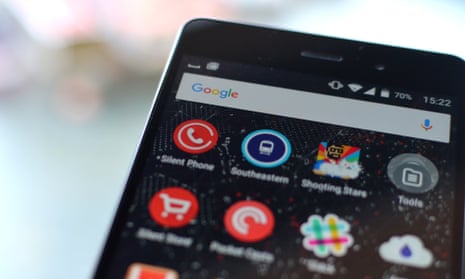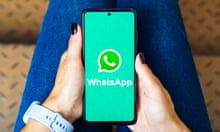Privacy and security of personal data is a hot-topic. From the snooper’s charter to the NSA, your Facebook settings to your medical data, concerns over the security of our information impacts many aspects of our lives. Many of us are exercised about intrusions and campaign strongly for personal rights - but when it comes to protecting ourselves, do we ever put our money where our mouths are?
In 2014, after the Snowden revelations, a partnership between Swiss privacy outfit Silent Circle and Spanish smartphone maker Geeksphone produced the Blackphone.
The was marketed as the first “NSA-proof” smartphone, able to protect users’ communications with a hardened, more secure version of Android, as well as offering encrypted messaging and phone services provided by Silent Circle.
You would think such a phone would find an audience among the most security conscious – despite not having Google Play Store and thus having very few Android apps and games – but a court filing in a fallout between Silent Circle and Geeksphone has revealed that’s not the case. Despite budgeting for demand for 250,000 Blackphones, only 6,000 were actually bought by distributors. The number that made it to consumers is presumably even lower.
Poor hardware choices and the restricted nature of the original Blackphone would have dented its appeal, but the figure still feels woefully low in a market where 1.4bn smartphones are sold each year.
Those deficiencies were rectified in September 2015 with the partnership’s follow-up, the Blackphone 2. It had access to the Play Store and behaved like a standard Android smartphone with security-minded additions. It cost £659 and came with a subscription to Silent Phone.
Sales data isn’t available for the Blackphone 2, but interest in it, even from a core privacy-aware audience such as the Guardian’s, was weak. A Guardian review of the Blackphone 2 published in November, for instance, only garnered 10% of the readership of the similarly priced mainstream Samsung Galaxy S6 review.
BlackBerry is another phone company which has long extolled the virtue of privacy as a selling point, with encrypted internet access and messaging at its heart. Sales of the company’s smartphones have bottomed out from a high of 20.1% of the market in Q1 2009 to less than 0.2% in Q1 2016, according to data from research firms Gartner and IDC.
Despite privacy being an important global topic, it seems the vast majority of people are not making purchasing decisions based on it.
There is a saving grace for consumers though, which is that mainstream smartphone manufacturers – including Apple, Google and Samsung – have steadily increased the security and privacy of their offerings. Apple’s iPhone and iPads are encrypted by default, while its iMessage service is encrypted end-to-end.
Google and Samsung’s recent devices are also encrypted by default and offer a variety of encrypted messaging services, including Silent Circle’s Silent Phone.
And there’s more positive news from Facebook. Its decision to switch its extremely popular messaging app, WhatsApp, to end-to-end encryption means more than 1 billion people are using a secure messaging service without them having had to do anything – even if many won’t know or care.
It seems privacy isn’t a big enough selling point to sway the majority of consumers, but that mainstream manufactures are increasingly baking it into the devices we’re are using, is good for everyone – everyone, that is, except the companies like Silent Circle trying to base their business model on it.










